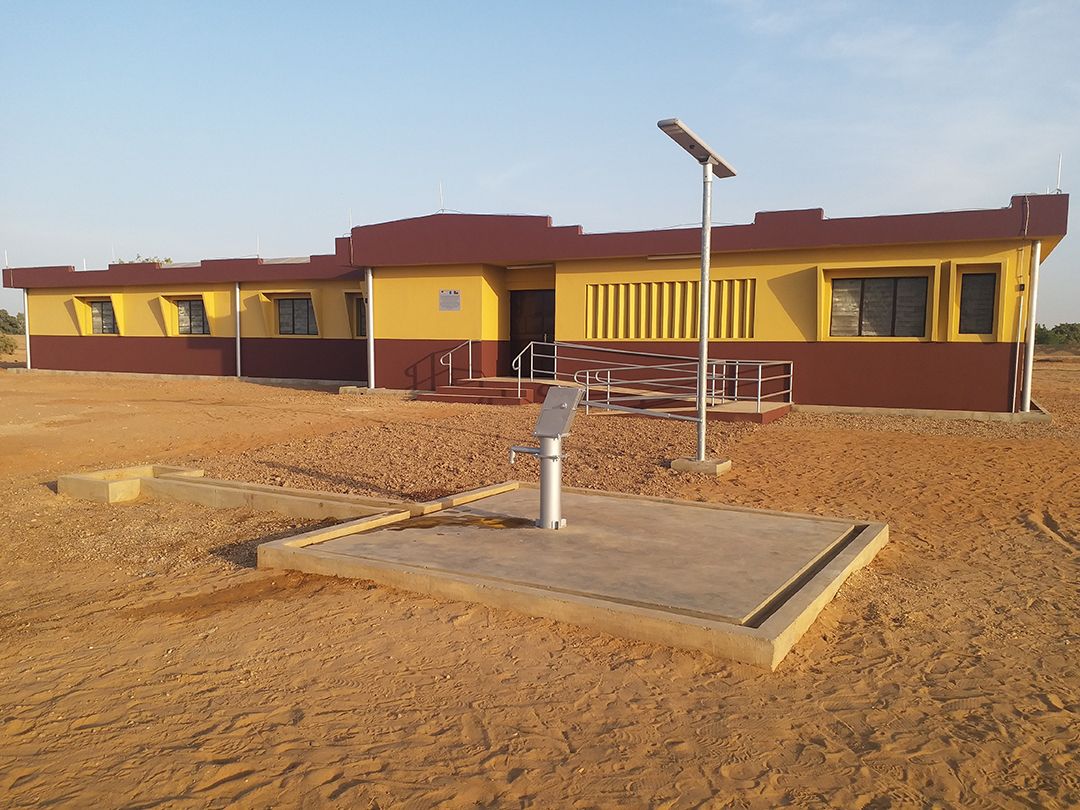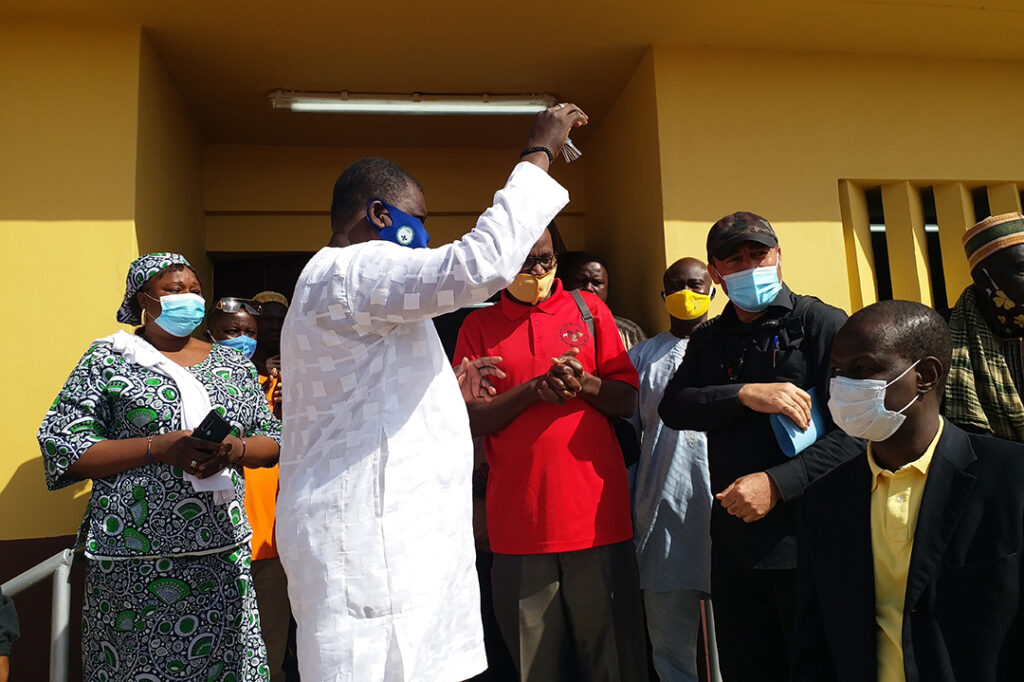ADF STAFF
When given the keys to one of two newly constructed health clinics, Gado Guidami raised and shook them in celebration.
Guidami, mayor of the border town of Malanville in northeastern Benin, knew the significance the clinics would have for the villages of Godjekoara and Money. He knew countless lives would be saved within those walls. He knew the empty structures would quickly become bustling community centerpieces and sources of pride.
“The buildings are bringing light and joy into the Godjekoara and Money communities’ lives,” he said.
Both main clinic buildings include maternity wards, dispensaries and midwife’s quarters. Other facilities at the two sites include a well, solar-powered lighting, hazardous waste storage and incinerators.
The clinics also are equipped with multicompartment ventilated pit latrines designed for areas that lack dependable plumbing. The latrines have ventilation pipes with built-in screens to reduce the gathering of flies and other disease-carrying insects.

Cosme Quenum, a Beninese coordinator of the Humanitarian Assistance Program in the U.S. Embassy in Cotonou, handed over the keys to the two new medical facilities in late January. They were built by the United States Army Corps of Engineers and funded by U.S. Africa Command as part of its far-reaching continental Humanitarian and Civic Assistance program.
In a country with the 27th-highest rate of maternal mortality in the world, the clinics are a safe place for women to give birth and where births can be properly documented. It is a major improvement from the common practice of pregnant women crossing the bridge into the city of Gaya, Niger, in search of proper medical facilities.
“In these areas, there are no basic health or educational services available for them,” Quenum said on the embassy website. “But now that a health clinic is available and accessible, any woman giving birth will be provided with a birth record for their child.
“This makes a big difference and will facilitate schooling when the time comes. Moreover, those children with birth certificates will be properly documented as Beninese citizens.”
Quenum said giving birth at home still is the most common practice in those remote villages, typically leaving no written evidence of when and where children are born. Children without a birth record are more vulnerable to human trafficking and being recruited by regional militant organizations.
Benin’s Ministry of Health identified the two villages as having critical health care needs. Also, U.S. Army project engineer Chris De Pooter said the Beninese Agency for the Integrated Management of the Border Areas confirmed that Malanville is one of the areas most affected by trafficking.
“This area is near the border with both Niger and Nigeria and is susceptible to arms, narcotics, human trafficking, and the influence of violent extremist groups,” he said.
Before this project, the U.S. Army Corps of Engineers built three schools last winter for the Beninese communities of Kpomasse, Danri and Biguina. Several other school and medical facilities are planned.

